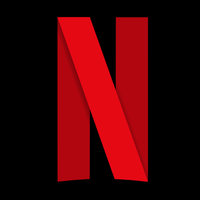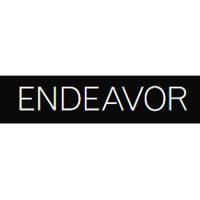
Netflix Inc
NASDAQ:NFLX


| US |

|
Johnson & Johnson
NYSE:JNJ
|
Pharmaceuticals
|
| US |

|
Berkshire Hathaway Inc
NYSE:BRK.A
|
Financial Services
|
| US |

|
Bank of America Corp
NYSE:BAC
|
Banking
|
| US |

|
Mastercard Inc
NYSE:MA
|
Technology
|
| US |

|
Abbvie Inc
NYSE:ABBV
|
Biotechnology
|
| US |

|
Pfizer Inc
NYSE:PFE
|
Pharmaceuticals
|
| US |

|
Palantir Technologies Inc
NYSE:PLTR
|
Technology
|
| US |

|
Nike Inc
NYSE:NKE
|
Textiles, Apparel & Luxury Goods
|
| US |

|
Visa Inc
NYSE:V
|
Technology
|
| CN |

|
Alibaba Group Holding Ltd
NYSE:BABA
|
Retail
|
| US |

|
3M Co
NYSE:MMM
|
Industrial Conglomerates
|
| US |

|
JPMorgan Chase & Co
NYSE:JPM
|
Banking
|
| US |

|
Coca-Cola Co
NYSE:KO
|
Beverages
|
| US |

|
Realty Income Corp
NYSE:O
|
Real Estate
|
| US |

|
Walt Disney Co
NYSE:DIS
|
Media
|
| US |

|
PayPal Holdings Inc
NASDAQ:PYPL
|
Technology
|
Utilize notes to systematically review your investment decisions. By reflecting on past outcomes, you can discern effective strategies and identify those that underperformed. This continuous feedback loop enables you to adapt and refine your approach, optimizing for future success.
Each note serves as a learning point, offering insights into your decision-making processes. Over time, you'll accumulate a personalized database of knowledge, enhancing your ability to make informed decisions quickly and effectively.
With a comprehensive record of your investment history at your fingertips, you can compare current opportunities against past experiences. This not only bolsters your confidence but also ensures that each decision is grounded in a well-documented rationale.
Do you really want to delete this note?
This action cannot be undone.

| 52 Week Range |
346.19
690.65
|
| Price Target |
|
We'll email you a reminder when the closing price reaches USD.
Choose the stock you wish to monitor with a price alert.

|
Johnson & Johnson
NYSE:JNJ
|
US |

|
Berkshire Hathaway Inc
NYSE:BRK.A
|
US |

|
Bank of America Corp
NYSE:BAC
|
US |

|
Mastercard Inc
NYSE:MA
|
US |

|
Abbvie Inc
NYSE:ABBV
|
US |

|
Pfizer Inc
NYSE:PFE
|
US |

|
Palantir Technologies Inc
NYSE:PLTR
|
US |

|
Nike Inc
NYSE:NKE
|
US |

|
Visa Inc
NYSE:V
|
US |

|
Alibaba Group Holding Ltd
NYSE:BABA
|
CN |

|
3M Co
NYSE:MMM
|
US |

|
JPMorgan Chase & Co
NYSE:JPM
|
US |

|
Coca-Cola Co
NYSE:KO
|
US |

|
Realty Income Corp
NYSE:O
|
US |

|
Walt Disney Co
NYSE:DIS
|
US |

|
PayPal Holdings Inc
NASDAQ:PYPL
|
US |
This alert will be permanently deleted.
 Netflix Inc
Netflix Inc















 You don't have any saved screeners yet
You don't have any saved screeners yet

Good afternoon, and welcome to the Netflix Q1 2018 earnings interview. I'm Spencer Wang, VP of IR and Corporate Development. Joining me today are CEO Reed Hastings; CFO David Wells; Chief Content Officer, Ted Sarandos; and Chief Product Officer, Greg Peters. Our interviewer this quarter is Ben Swinburne from Morgan Stanley.
Before we begin, a reminder that we will be making forward-looking statements and actual results may vary.
With that, let me turn it over to Ben for his first question.
Thank you. Reed, I want to ask you, given the strong results again this quarter, talk a little bit about what the company is doing today that may be different to what it did 1, two years ago. You can hit a scale of the business, particularly as you're moving into markets that are maybe quite a bit different from the developed markets that you've scaled already.
It's a lot more similar than it is different. We're continuing to invest in content, marketing, product, all of the things we've been doing. There's certainly some secular shift towards Internet viewing. And then we're seeing just the breadth of content that we've got going is really remarkable. And maybe, Ted, you want to talk about some of the local shows that we've been doing around the world that our U.S. investor base may know less of.
Yes. We've been able to launch original series in local language with local producers all over the world who've shot in 17 different countries original programming to date, and we expect that to continue to grow. And it's content that is for the country or for the region, but we've actually found great global success. This quarter, we have a new season of 3% coming up, by way of example, which is a Brazilian sci-fi show that really scored well around the world for us, and people are super excited about the new season even though we've made it in Portuguese for Brazil, and maybe one of the first examples of local-language Brazilian television working around the world. So it's -- we're really thrilled to be part of that.
And Reed, how might the go-to-market strategy look in a market like India or some of these emerging markets where you might partner earlier in the life cycle of Netflix than, say, what we've seen in other markets where, you look at the U.S., you're now really working with Comcast quite a bit but you've scaled this market. Could you move towards a distribution model with partners faster in emerging markets? And what does that mean, maybe for David, financially for the numbers we look at?
Greg, I'll let you take that.
Sure. Our partnering strategy, I'd say, is on an evolving trajectory across all the markets that we serve in. And it started with rich history with television manufacturers, CE manufacturers where we've integrated on their products, and that's been hugely successful for us. But a new wave that you've started to see over the last several years is starting to partner up now with operators, sort of MVPDs, Internet service providers, mobile operators, and we've evolved those partnerships. And based on what we've seen with these new bundle models that we referred to with both Comcast and Sky announcing in the last quarter, we've seen the economics of those, if you take in the retention, the acquisition characteristics to be very, very beneficial. And we love the fact that we can work with these partners to access whole new groups of consumers, make it easy for them to find out about Netflix, to sign up and have a great way to access the service and watch more and more. So you'll see us leverage that sort of evolving strategy not only in the markets that we've been in for many years, but also in these new markets. But it's a consistent shift across all of our markets.
And then, Ben, financially or economically for Netflix, we wrote in the letter about international ASP prospectively that might actually start occurring, where this is affecting where we're adding subscribers on a net revenue basis. I would say that's all about perspective growth forward. To date, Netflix has always -- outside of gift cards, has added always on a gross revenue basis. And I would say, a technical point for investors just around GAAP revenue accounting, is we're always in the principal position versus the agent position. But for some of these deals prospectively going forward where there's not a price visible to the consumer discreetly on Netflix and it meets a couple of other conditions, we may book these on a net revenue basis. But they're very immaterial today. If they grow, we'll call these out for you going forward.
And maybe, Ben, if I could just add on that front. In terms of the underlying economics, they're pretty consistent with our past partnerships. And obviously, what David is talking about is really more of a financial presentation difference. So from an operating income perspective, it's really quite similar, the impact.
Yes. What about taking a more aggressive approach in emerging markets with lower price points, either on a retail level or with wholesale partners? If you think about the mobile opportunity in a market like India, again, it's a lot larger than perhaps the pay-TV TAMs. So if you think about attacking that market differently from a pricing and distribution perspective. And then, for Greg, what do you do from a product perspective to make sure mobile is a place that Netflix can really thrive on?
On pricing, we've been very happy with the results on our INR 500 to INR 800 in India, our pricing in the different countries. So no near-term plans. Of course, we are always trying to learn more over time. And Greg, over to you on mobile.
Yes, and then we definitely want to have a mobile experience which allows us to access more of that market and access a group of consumers who basically only want to have their relationship with Netflix on a mobile device. And so whether that is making sure that our apps are lightweight enough so they load really quickly and have a great experience there, to making sure that our encoding is very, very efficient, so that even if you have a less-than-great network connection, you can still get a really incredible video experience on that mobile phone. And it's something that we have been able to drive down to, in my mind, remarkable efficiency where you can stream incredible video quality on even very, very suboptimal network connections. But ultimately, even -- we want to do things like the download capability that we launched, where if you have no connection or it's a spotty connection or you just want to save your data plan, save that -- those -- that data bits for something else, we allow you to download some shows and enjoy that even when you're offline. And I think it's a great example of, we're investing in a feature which is used differentially more in these emerging markets that you've mentioned, but it also fits our global product model, where our members around the world are getting a benefit, whether that's hopping on the plane or in other various ways.
And what's next, Greg, on the top product pipeline that we should be excited about?
There's a bunch of different stuff that we're working on, but maybe a few to call out. One is -- relatively new area for investment for us is building technology to support our content side. So the programming choices that we make, how we can produce content efficiently. And obviously, as that amount grows and grows and grows, that's a super high leverage point for us to bring and relatively, I think, a greenfield opportunity for us to bring technology to influence those outcomes even more. But then we bring this amazing library of content. And what we think almost every day about is, how do we do an even better job innovating so that we can bring our members the perfect piece of content to watch whenever they access Netflix? And so you're going to see us do a lot more to innovate around that. How do we launch new shows? How do we make them accessible to our members around the world, whatever language they're speaking, whatever territory they're in? And we're excited about all of those components.
And Ben, before you go. Greg, you'd say the third area that is related to some of the G&A growth that investors see is our investments in studios as well, Ben. So it's -- we're saying, calling out that we're also investing on the technical side in our studio buildout.
Let me come back to the quarter and the sort of financial commentary in the letter. David, for you, you've taken up the OI guidance a little bit for the year. Maybe you could just talk about what's changed in the budget or -- and what you're thinking about presenting to us relative to where we were, say, in January.
Well, really, what's changed is we've outperformed the business in a way that we didn't predict. So if you look at sort of our outperformance over the last 3 quarters, the business has grown faster than we've expected. We're able to redeploy that and reinvest some of that in content, but there's a long lead time to that and, to some degree, some of that goes into marketing of that associated content. But I think investors are benefiting from just the overall growth of the business. We're able to redeploy some of that towards it, and some of it, it just shows up in higher operating margin. So I think we posted 12%, and 12%, and we've got a lot of content and marketing sort of back-end-loaded to this second half of this year, but it's somewhat the acknowledgment that the business is growing so well.
Marketing in the back half of the year, or back-half weighting, I guess a better way to put it, is that just a function of the timing of content? Why is marketing particularly back-end-weighted?
It's mostly just the timing of content. So we've got a lot of great releases that I'm sure Ted can talk about coming up in Q3 and Q4.
Yes, let's move to Ted, then. Talk about what is ahead of you from a content perspective that you think we should be focused on. And also, I'd love to hear how you think sort of the news category or news-like programming may be impacting either the business today or your strategy going forward, because it just seems like you guys are actually spending a little more time thinking about and executing on some of those type programs.
Well, as you know, we've been pretty successful with documentary -- feature-length documentaries, both with great (inaudible) audiences. But our move into news has been misreported for -- over and over again, and we're not looking to expand into news beyond the work that we're doing in short-form and long-form feature documentary. The upcoming things that I think are particularly exciting in the quarter, we have a new season of 13 Reasons Why coming out this quarter. The first season of 13 Reasons Why was one of the most watched television shows of the year last year around the world, so we're really thrilled about that. And new season -- returning seasons of our hits like Luke Cage and GLOW, Dear White People, Unbreakable Kimmy Schmidt. We have a great comedy feature film coming up with Adam Sandler and Chris Rock, called The Week Of. And we've already started this quarter with new seasons of Santa Clarita Diet, Series of Unfortunate Events and a lot of real fan favorites. And then we've got 3%, which I mentioned earlier from Brazil, for a new season, but also a brand-new, original series from Denmark, called The Rain, that we think is going to play really well all over the world.
And Ted, there's been some discussion about Netflix and the Obamas working together on a product that maybe is not real live news, [possibly] topical. I look at the Letterman programming also as an example of stuff that's sort of moving in that direction. Do you see that playing a bigger role in the content slate over time?
The topical interview shows like that are -- absolutely, but mostly, you keep in mind that they're entertainment. Those are a form of entertainment. David Letterman is a great talk show host, not a newscaster. So we'll definitely do more of that. And I can't comment on the Obamas or any other deals that would be in various states of negotiations right now.
Okay. I've got to ask you also about some of the controversy on the film festival side. You've been pretty outspoken as it relates to the Cannes situation. Can you talk about where this is all headed? Do you think it impacts Netflix's ability to attract talent, source, film, content, given there seems to be some industry pushback around the lack of theatrical releases in awards?
Well, we've addressed Cannes in the letter, so that kind of speaks for itself. And I'd say, generally, we are -- we released 33 films in theaters last year, just we released them day in day with Netflix. And I think it's be -- become more and more accepted and -- as part of the distribution norm. And defining distribution by what room you see it in is not the business we want to be in. We want to be about making great films that people love.
So no thought about wider releases in order to make sure that your talent gets a shot at an -- awards that might be important to them?
Well, keep in mind we had five projects nominated for the Oscars last year. We all released in this model, so.
Okay. David, back to you, just coming back to the financials. I think the cash burn in the first quarter was, what, maybe $250 million, something along those lines. You're still guiding to $3 billion to $4 billion. Is that something that you still think is the right range? Could you come in at the lower end of that?
Of course, we could. We're not projecting that we are, and I think it is related to the back-end content loading that we just talked about. So cash was modest in terms of relative to the content in Q1, but we anticipate the timing to be a little heavier in the back end, and that shows you -- or points to the range still being $3 billion to $3.5 billion to $4 billion.
Okay. And on the content obligations front, or contractual obligation, I think it was 17, I believe, nine at the end of the quarter. So we are seeing a little bit of a second derivative slowdown there. As you move towards more original as a percentage of the total spend, that number, I believe, should start to plateau, maybe even decline. Are we there yet? Is that what we're starting to see in the numbers when you look at that obligations off balance sheet liability?
Well, I think most people, Ben, I think, want to incorporate the component that we're shifting our mix to more produced assets or [owned] assets for Netflix. I look at 2 components -- or 2 easily externally verifiable components. One is that streaming content obligation, but the other is the film assets, the produced asset value on our balance sheet. And so even though -- even taking both into account on a per-member basis, what you saw is a lower per-member year-over-year. And I think that you are starting to see some of the second derivative take hold, but I don't want to hold us to that. It's not like we aim the business towards that or we try to grow the business towards that.
And just to add, Ben, to narrowly answer your question. The shift to self-produced will likely result in slower growth in the total obligations. However, there are components of self-produced content that also impact the content obligations [like] participation.
Multiple-season commitments in [inaudible], yes.
Sure.
It's a technical point, Ben. I would just annotate Spencer, meaning that those are modest relative to the whole and some of the other bigger components. But that's right.
Makes sense. Reed, any updates on your thinking on the China opportunity? I know you have a partner there, but that market is evolving rapidly. It's quite a dynamic market. Have you thought about shifting strategies at all in that -- in China?
You mean, now that IT is public, we should enter late? No. We're very comfortable with our China strategy of licensing our shows in the way HBO does, and so that's the strategy.
Okay. Makes sense. Coming back to the market like the U.S., just to take it as an example, the market's pretty far along the OTT path, to some extent. Roku's got 5000 channels on the platform. OTT is not new, Internet TV is not new here. Reed, do you have a view on sort of how many OTT services or television services these consumers are going to have as this spot business starts to mature? Do you think we have this -- sort of the equivalent of a fully distributed Internet TV network long term, the way we've had in the pay-TV model? Or do you think fragmentation and choice will lead to a much more sort of fragmented marketplace?
Well, the great thing now is it's easier to create a television network called an app, and I think they'll be as -- think of all apps on your phone will have some form of video, or most apps will. And so you just see a very wide spread of entertainment options, some of which are movies and TV shows, some are more interactive. And all of that mobile phone energy will spread to the television with operating systems like Rokus. So I think you'll see a very long tail. And of course, we want to be one of the apps that nearly everybody has on their home screen, whether that's on the phone or on the television. But again, if you look at the mobile phone ecosystem, it's very rich, and we see television getting close to that.
And what happens to engagement over the longer term in that scenario? Because what we saw on TV, you started with 3 large broadcast networks pre-pay-TV, and then we just sort of fragmented our way through over the next kind of 40 to 50 years. Is Netflix sort of the NBC or CBS in 2017 of those networks in 1950 before the market started to evolve? Or do you think engagement continues to grow and it consolidates around the bigger players?
Well, it's all up to us and execution. You're right that there are so many competitors, especially around the world, some of which are really focused on a particular culture. Others are, like Sky or in many different cultures. So the consumer has a lot of entertainment options. And then whether our share of that grows or shrinks is really up to, do we produce great content, market it well, serve it up beautifully? And if we do that really well, if we earn more of consumers' time, then we continue to grow. And if we get lazy or slow, we'll be run over, just like anybody else.
So what is the biggest challenge ahead for the company, Reed? I think you look at the stock, up 60% year-to-date, and I'm sure and then some as we speak, there's probably a view out there that you guys have got it all figured out. What -- how do you keep the organization from getting complacent, staying motivated, and maybe throwing over to Ted, for managing the size of the output?
We're a fraction of the hours of viewing of YouTube. We're a fraction of the hours of viewing of linear TV. We've got some great momentum, and we're very excited about that, but we have a long way to go in terms of earning all of the viewing that we want to.
Yes. And I think, in terms of scaling the original production and the licensing of content around the world, it's mostly about picking great people, giving them a great place to work, trusting their -- trusting them and empowering them to continue to make great choices, which we've really been focused on, both producing original content in the U.S. and in, like I've mentioned earlier, 17 countries around the world. And just figuring out what people like, and really, at the end of the day, I think the winners will be those who pick up their shows that people can't live without, and they become associated with that kind of intense fandom that we can keep bringing to them day in and day out.
And then, Greg, when you look at the $1.3 billion or so in tech and dev book spend that you guys have this year, where is that money going from a priority perspective to make the product the best it can be for members around the world?
Again, as I mentioned before, we're looking at it from a global product perspective. So we think that there's significant leverage that we get by trying to provide one solution against what we see as a pretty consistent set of consumer needs around the world. Now we're obviously trying to be mindful to these different use cases, how consumers in different markets react to our product, and learn things like downloads that we say, how there's a specific need in those markets but they prompt, in many cases, a general solution that we, again, get that high leverage. So we're really looking at the opportunity globally. The world is a place to learn, to understand from consumers, listen to them, but then react in a way that's scalable.
Maybe going over to Spencer. There's been a lot of press reports, anyway, about potential M&A, variety of areas and studio assets, I think, over in Europe, Outdoor's assets here in the States. I'm sure you can't comment specifically, but it does seem like Netflix may be more acquisitive looking forward than it's been in the past. Can you just talk about your philosophy on M&A and what might make sense, what might not, as you guys think about growing the company?
Sure. So if we look at the path, that bar is quite low since we've done very few transactions. We've only done one in our 20-year history. So based on that track record, I think the takeaway for investors is that we have a strong bias to build over buy. That being said, we do see M&A as a perfectly fine tool for us to help find interesting assets to help grow the business. So from our perspective, we continue to be on the lookout for new IP or other related assets that can help improve the service and help us grow faster.
Right. And Spencer, I'd just add by way of example, that the Millarworld acquisition, we're already in production on our first production with Umbrella Academy and we just released our first comic book. So in terms of using M&A to acquire a meaningful IP, this could be a very useful tool.
Maybe sticking with you, Ted, can you talk a little bit about the market for licensed product, and whether as Disney and others move closer to bringing their own product to market, the supply is drying up or you're thinking differently about acquiring third-party content?
Well, you've seen us move pretty aggressively into our own original programming, which means we're doing less licensing in that same way. It's -- we're moving both dollars up as -- in absolute, but as a percentage of our investment, we're investing more and more in original. And that's both a product of it's been working for us, it's been helping us grow the business, grow view hours, but also the ecosystem that produces that content that we're buying in second windows and sometimes third windows isn't producing content at the level of demand and quality that it had been over the years. So the things that we're engaged in bidding on are more selective, and there's less of them. So we are -- when there's -- when something shows up, though, that is great, like The People v. O.J., by way of example, we're in the mix and still licensing a lot of that content and certainly license a lot of great movies around the world and television content from around the world for the -- our other territories. You should expect us to be moving more and more into license and produced original programming versus fishing in the secondary market.
And I think you guys just renewed or ordered a new season of Jessica Jones from Marvel. Is there any change in how you think about continuing the sourced content on the Marvel side, given all the changes that are happening and their strategy at Disney?
No. We're thrilled with The Defenders universe and Jessica and, I said we have Luke Cage coming up this quarter for a new season. And those will continue as long as we want to keep making them, and it could be a quite wonderfully expanding universe and we would try not to let the business models get in the way of great -- making great programming for our customers.
Any impact from Hulu, which has been more and more aggressive acquiring prior-season content? I don't know if you're getting a look at that stuff or if it's just being kind of kept away from you for maybe obvious reasons?
No, I mean, we've been in the mix on some of them. Not many, but the ones that -- where there has been -- they've been in the mix, too, and I think that's closer to what they're doing on their business model, going after the broadcast with a select few originals, where we've gone much more the other way.
Yes. And for you, and also for David, you guys are continuing to push into local originals. I think you had 30 on this slate for this year, I believe, local originals. Talk about where you source all that from locally. Is it hard to find local talent to develop that content? And from an efficiency perspective, for you and/or David, how do you think about the financial returns of those shows which are obviously not -- typically not an English native?
What's been really great is the things that we'll -- we can bring our technology know-how to bring a great story from anywhere in the world to the rest of the world. And using our ability to subtitle and dub, and getting better and better at doing that quickly and accurately and artfully, has -- can make a very local show at least pan-regional and, at best, global. And we've seen that, like I mentioned, with 3% earlier. We just saw it with Dark from Germany, which played really well. I mean, those numbers -- those U.S. numbers for us on those foreign-language shows would be big hits on cable with those numbers in the U.S. We've been particularly pleased to see a show like Casa De Papel or Money Heist, as those were released in the U.S., so successful for us all around the word that we've bought the series IP, and we'll be producing sequels and spinoffs of Casa De Papel as original content for years to come. So it's -- the scale on it has been, if it connects in the country, that's what it's built for it. And if it gets viewing outside of the country, that's great. And if it's a global viewing, like we've seen with Dark and 3% recently and Chicas del Cable from Spain, we're thrilled and it scales wonderfully.
And Ben, we're also investing to support that work on the dubbing and subtitling quality. So investors should check out The Rain, which is our Swedish, Danish film coming out -- sorry, series coming out in a few weeks, and just to look at the quality of what the dubbing could be, because we're really making a big investment there that we think will pay off in approachability of all these titles from the world to the world.
Yes, and I think, too, if you see it, one of the nice things is we're not trading off -- we're not watering down the local aspect of the show at all to make it travel. These are local storytellers telling stories for local audiences that are so good, they travel globally. So there's nothing less German about Dark, and there's nothing less Danish about Rain. And Brazil, like I said, in Portuguese, with a full Brazilian cast. And these are, you mentioned earlier, is not hard to find. I mean, there's incredible storytellers and producers around the world that just have not had access to a global audience before, and we've been able to find them pretty effectively.
So Ben, just to connect on that last one for financially. Like just what Ted and Reed have teed up is, we're drafting off a world that's becoming more global and more connected. And so we're able to tell stories in non-English from local storytellers that are gripping for audiences outside their local market. And in many ways, we're elevating the storytelling which translates to increased cost but still, relative to a TV production in the U.S. or some other expensive developed market, it's quite a -- it's a fraction of the cost. And so it doesn't necessarily translate that more local television for Netflix equal lower margin for Netflix. We've made that point a couple of times, but I'll make it again in the sense that we're really excited about the transportability of some of this content because it's really opening up new stories across the world and in a way that doesn't sacrifice margin.
And maybe connecting those two points again. Ted, if the local original does connect locally, is popular locally, is that a fairly high correlation that it's going to connect globally?
Not particularly, not particularly. It's interesting some shows, because they're just -- they're hyper-local in the topic that don't travel but do incredibly well, 40%, 50% penetration in a market that don't particularly travel. But for the most part, what we found is, on the large-scale production shows, that they do travel quite well.
David, how are you thinking about marketing versus content spend in terms of the incremental dollar? You guys have clearly pivoted -- not pivoted, that's not right, but you've leaned in to the marketing budget this year. There's a phrase in the letter, density of viewing, which I think is new for you. What does that mean and how are you thinking about marketing -- investing behind your marketing ahead -- relative to your content spend over the next couple of years?
Well, I think that, in relation to density, I'll let Reed speak to it because I think it equates to public joy, but it's -- may be a little bit more of a precise term, in terms of you don't need a title that 75% of the world is watching. You may love a title that 75% of a particular population of people is watching, and that speaks to density. But you're correct. We have definitely leaned more into marketing, and I think some of it is very sort of common sense, in the sense of, as we create more and more of these titles that no one has heard of, we're going to need to lean a little bit more on promotion, and the website can't do it all. So I think you're seeing some of that in terms of a nod towards maybe increasing that ratio of marketing spend to content spend. We don't know where the perfect point is, in that we're a company that leans on experimentation. We try things. We turn them over, and then we'll increase or decrease based on the results as we see going forward, and I think that's the approach that you should expect from us.
Does that lead maybe to a slower growth in content spend? Because if you're throwing a lot of marketing, there's only so much that you could really support for a given population. I would assume we all have this idea of a somewhat limited attention span.
Well, you're definitely seeing revenue grow faster than content already, and that's where operating margin is coming from. I can't say for sure where -- does it mean that marketing will go faster than content or content faster than marketing? I'm not sure. I think we're trying to feel our way along to the right point going forward. But I don't know if, Ted or Reed, if you have a sort of annotation on that or not.
We have big plans for content growth, and you should expect that to continue. We're also, as David said, trying to learn, hey, if we put in more marketing versus less in different countries, what are the results? And so that's part of what you're seeing is this realization, this new opening, and how it increases the value and the viewing of our new original franchises.
And David, do you have a view -- I mean, now that your -- the business has over 100 million members, the -- your contribution profit positive internationally and in the U.S., we already talked about marketing, do you have a view as to where long-term margins shake out for this business as you think about a "steady state"?
Well, I think we're -- you asked a question earlier about our only opportunities being in Asia. That presupposes and sort of puts in the bag all this other growth in Latin America and Europe that, I can -- I could speak confidently on behalf of the team, that we don't take for granted. So we have a lot of opportunity and growth still in our core markets. The markets that we've been in for 5, 6, 7 years. I would say we're targeting 10 to 11 this year. We've been putting on a pace of about 300 basis points. It's hard to know for sure where that goes. It really depends on the scale of the business that we are in 5 or 10 years. We think we're after a big opportunity, and the bigger the business we are, the higher that margin could be. We're certainly not down. You've heard me say in the past that we're not bound by international growth being at a lower margin. It's somewhat dependent on the competition within that territory. It's somewhat dependent on the size and scale of the business as we grow, and we think we've got a big market opportunity. So I would leave it there.
Makes sense. And Reed, how do you think about ASP growth over time? You guys have implemented a number of, what I would call, successful price adjustments or price increases. Is the way to think about ASP growth going forward sort of what we've seen over the last several years?
Well, it really depends on the offering, the quality of our offering relative to others. So you have to earn it first by doing spectacular content that everybody wants to see. But if you do that, you can get people to pay a little bit more because then we're able to invest more and further improve. But we always approach it on a "have we earned more viewing from people" basis first rather than a price-first basis.
The letter talks about the strength in the quarter coming from, I think, higher additions or gross adds. So maybe, David, just coming back to the business on churn, is there an opportunity you can hit to work churn lower from here? Or do you think you guys have hit, at least in some of your older markets, a retention level that's probably going to be tough to materially change?
Well, it's hard. Again, we've made this point before, but the noise in terms of who comes in and who stays and all that, we're mostly focused on having a member that we -- that pays us or feels good about paying us over time. We break it out in order to give some color commentary. I would say, in these established markets, we're getting pretty close to asymptotic churn. We think we've got mild improvements, but we're so big that even a 10 or 20 basis point improvement can be meaningful. In the newer markets, it's really about increasing engagement because we do feel like that there is a tight relationship between engagement and churn up to a certain point, obviously with diminishing marginal return, but we're still young enough in many of the newer markets that we're focused on that and growing that engagement to improve retention.
Ben, I think we have about time for one last question.
Sure. I didn't want to let this end, Reed, without going back to you. And given what's happened over the last couple of months in the tech industry, just get a sense from you and how you think -- what you think the implications are for Netflix, if any, from all of the focus by regulators, by consumers on data, privacy, the use of data to drive your business, GDPR. What does this all mean for Netflix? If anything are you making any changes?
Well, I'm very glad that we built the business not to be ad-supported but to be subscription. We're very different from the ad-supported businesses, and we've always been very big on protecting all of our members' viewing. We don't sell advertising. So I think we're substantially inoculated from the other issues that are happening in the industry, and that's great. And then, second, I'd point out that we'll spend over $10 billion on content and marketing and $1.3 billion on tech. So just objectively, we're much more of a media company in that way than pure tech. Now of course, we want to be great at both, but again, we're really pretty different from the pure tech companies.
Great. Well thank you, everybody.
Great. Thanks, Ben. Thanks to all our investors.